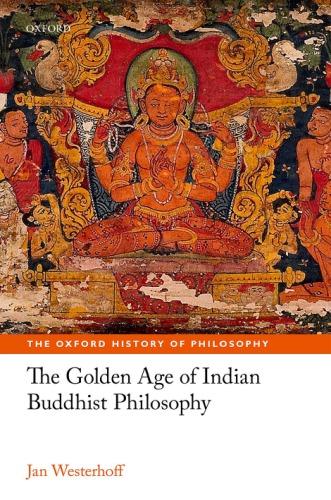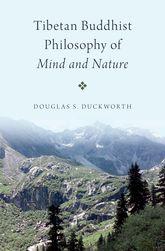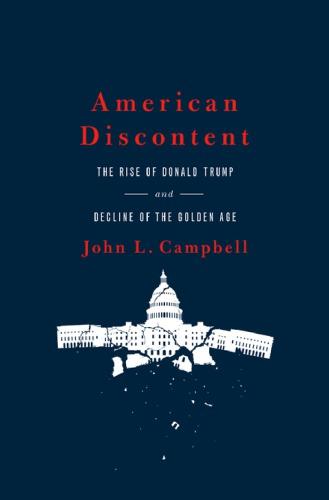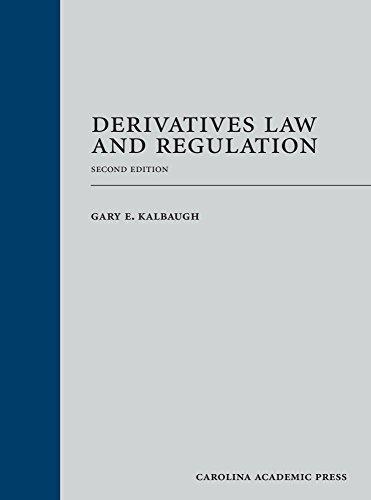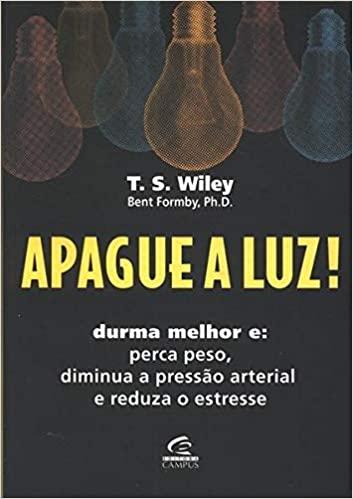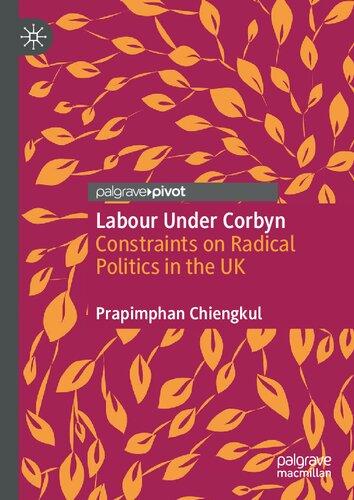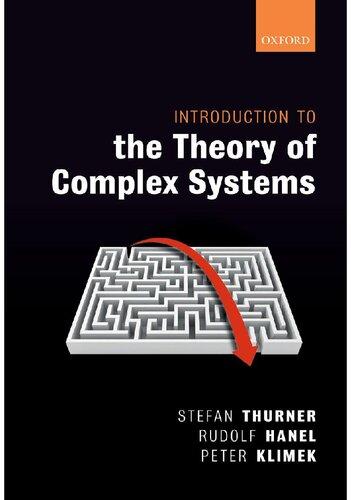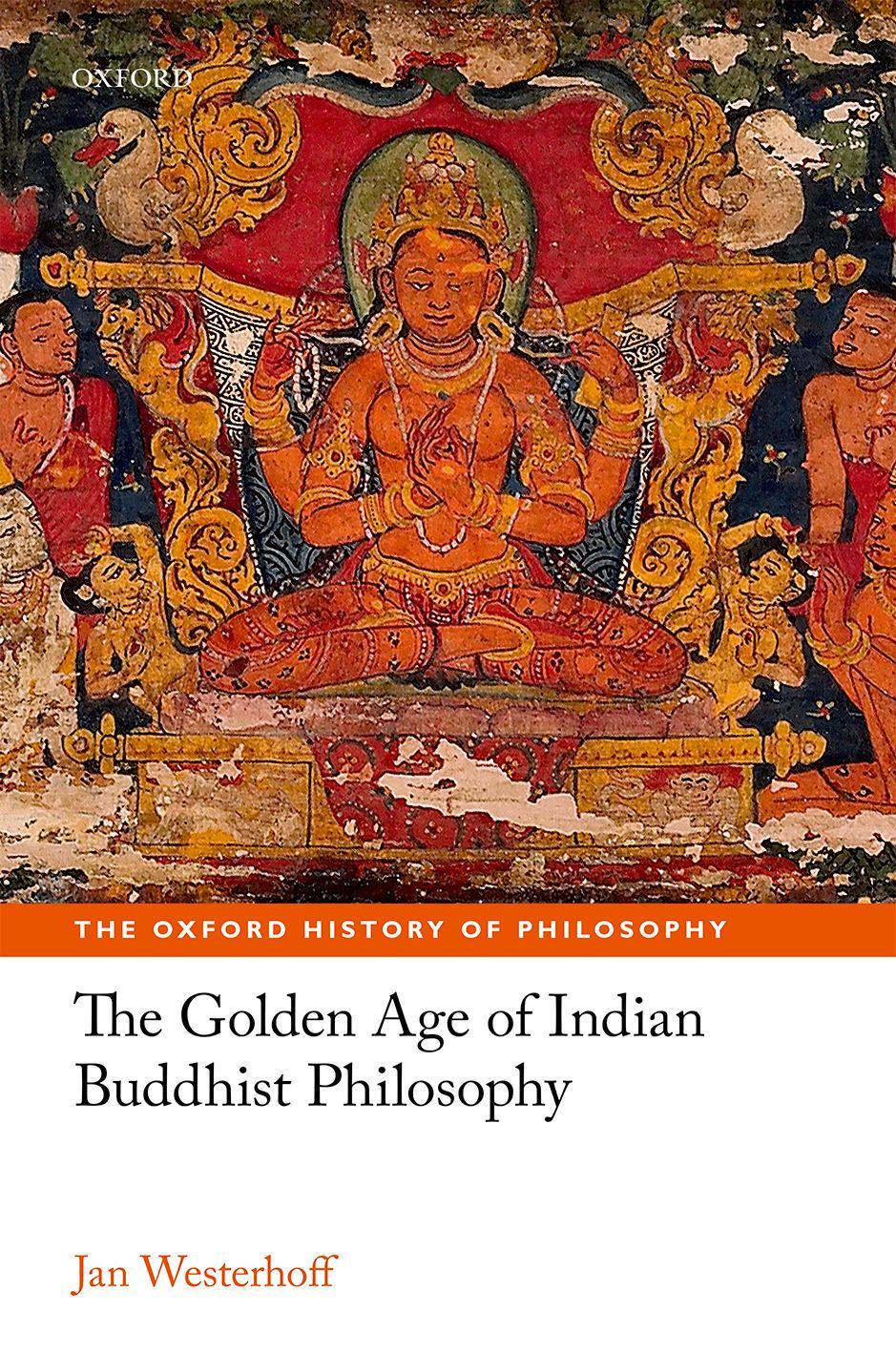TheGoldenAge ofIndianBuddhist Philosophy
JanWesterhoff
GreatClarendonStreet,Oxford,OX26DP, UnitedKingdom
OxfordUniversityPressisadepartmentoftheUniversityofOxford. ItfurtherstheUniversity’sobjectiveofexcellenceinresearch,scholarship, andeducationbypublishingworldwide.Oxfordisaregisteredtrademarkof OxfordUniversityPressintheUKandincertainothercountries ©JanWesterhoff2018
Themoralrightsoftheauthorhavebeenasserted FirstEditionpublishedin2018
Impression:1
Allrightsreserved.Nopartofthispublicationmaybereproduced,storedin aretrievalsystem,ortransmitted,inanyformorbyanymeans,withoutthe priorpermissioninwritingofOxfordUniversityPress,orasexpresslypermitted bylaw,bylicenceorundertermsagreedwiththeappropriatereprographics rightsorganization.Enquiriesconcerningreproductionoutsidethescopeofthe aboveshouldbesenttotheRightsDepartment,OxfordUniversityPress,atthe addressabove
Youmustnotcirculatethisworkinanyotherform andyoumustimposethissameconditiononanyacquirer
PublishedintheUnitedStatesofAmericabyOxfordUniversityPress 198MadisonAvenue,NewYork,NY10016,UnitedStatesofAmerica
BritishLibraryCataloguinginPublicationData
Dataavailable
LibraryofCongressControlNumber:2017958149
ISBN978–0–19–873266–2
Printedandboundby CPIGroup(UK)Ltd,Croydon,CR04YY
LinkstothirdpartywebsitesareprovidedbyOxfordingoodfaithand forinformationonly.Oxforddisclaimsanyresponsibilityforthematerials containedinanythirdpartywebsitereferencedinthiswork.
Intheworldandworld-transcendent, BeyondtheWisdomGoneBeyond, Inten-perfectedformresplendent, Wisdom-goddess,praisetoyou!
(FromahymntothePerfection ofWisdom,Pandey1994:125)
Acknowledgements
Iwouldliketoexpressmygratitudetomyteachers,colleagues,andfriends, fromwhomIhavelearnedmuchaboutthehistoryofIndianBuddhistthought, inparticulartoDavidSeyfortRuegg,JayGarfield,MattiaSalvini,DanArnold, JonathanGold,JonardonGaneri,TomTillemans,GregSeton,andParimal Patil.SpecialthanksareduetotheBuddhistStudiesResearchSeminarat King’sCollegeLondon,wheresomeofthematerialwaspresented,andto MarkSiderits,whoprovidedmewithdetailedcommentsonthefourthchapter. Theircommentshavehelpedmegreatlyinimprovingthisbook;while Icannotclaimthattheremainingmistakesarecompletelyoriginal,theyare, however,whollymyownwork.
Finally,IwouldliketothankmywifeYukaKobayashiandourdaughter SophiefortheirsupportandpatiencewhileIwaswritingthisbook.
4.KeyThemesofNāgārjuna’sThought
āgārjunaandthecriticismoftheAbhidharmaproject
āgārjuna’sthought
5.TheCommentators
ŚāntaraksitaandKamala
3.Yogācāra147
1.FiveStagesofYogācāra ’sDevelopment
4.TheSchoolofDi : nnāgaandDharmakīrti217
7.HowtoClassifyDinnāga ’sandDharmakīrti’sPhilosophy
8.TheSchoolofDinnāgaandDharmakīrtiandIts
RelationtoMīmā : msā
a.Mīmā : msā epistemology
b.Mīmā : sā philosophyoflanguage
c.Mīmā : msā,historiography,andhistory
9.TheEndofBuddhistPhilosophyinIndia
a. Śāntideva
b.AtiśaDīpa : mkaraśrījñāna
ConcludingRemarks282
AnalyticalTableofContents Introduction1
1.BuddhistPhilosophyinIndia:AWheelEverTurning 1
Thewheel:metaphorfortheBuddhistdoctrine BuddhistthoughtinIndia: permanenceandchange
2.PhilosophyasaGame 2
Thegameasaheuristicdeviceforunderstandingphilosophy Fourfactors shapingagame Narratingthegame Sourcesthenarrationisbased on Foundationaltextsandcommentaries Philosophicaldebatesin ancientIndia Doxographicalworks Thegame’sviewofthegame
3.FactorsDeterminingtheGame 4
HistoriesofBuddhistphilosophyaspartialpictures Periodcovered: AbhidharmauptoDharmakīrti Social,economic,politicalfactors a.Arguments 6
Argumentsasdrivingthehistoryofphilosophy DevelopmentofBuddhist philosophy:threestages Debateswithnon-Buddhistschools b.Sacredtexts 7
Interpretable/definitedistinctionassourceofvariationinBuddhist philosophy
c.Meditativepractice 8
Theneedtoclassifymeditativeexperiences · Threefactorsasgravitational forces · Exaptationofphilosophicalconcepts
4.NarratingtheGame:HowtoStructuretheMaterial 9 ChallengesinstructuringahistoryofIndianphilosophy · Ahybrid structure · Fourschools · Buddhist–non-Buddhistdebates · Key thinkers · Keytexts · Keyconcepts
5.TheSourcesoftheGame 11
a.ThebasesofBuddhistphilosophy 11
EarlydiscoursesandMahāyāna sūtras · The ‘originalteachings’ ofthe Buddha · Differentwaysofconstruing ‘originalteachings’ · Frameworksofphilosophicalactivity: debates,commentaries,doxographies
b.Debates 13
Publicdebates · Debatemanuals · Nyāya:threekindsof debate · Influenceonphilosophicalworks · Debateand Vasubandhu’ s Vimśikā · Textsasresponsestophilosophicalrivals
c.Commentaries 15
Characteristicsofa sūtra · Differenttypesofcommentaries · vivarana · bhāsya · vārttika · kārikā · Buddhistcommentaries · Buddhist kārikāsandtheirauto-commentaries · Commentarialpracticeand authorialintent · Conflictingcommentarialinterpretations · Sterility andarbitrariness? · Thetext’strueintent?Exampleofthe Abhidharmakośa · Commentaryasconnectingpastand present · Commentarialactivityasacreativeenterprise · Buddhist philosophyasacommentaryonthe sūtras
d.Doxographies 21
Listofobjectionsvs.doxographies · Buddhistinterestin doxography · Establishinguniqueness · Anti-substantialism · Types ofdoxographies · a.Defenderandinterlocutors · b.Expositionand refutation · c.Non-hierarchicalpresentation · Exampleofb: Bhāviveka · Doxographichierarchy · Exampleofc: Haribhadra · Doxographyandsoteriology
6.TheGame’sViewoftheGame 24
Conflictingassumptionsabouttheexistenceofthepast · Maxim ofcharity · Nāgārjuna’slifespan · TheNālandā tradition · ‘the wayitreallywas’ · Canonformation · 4criteriaforauthenticity · Historicalandhermeneuticunderstandingof buddhavacana · Buddhist philosophyandtheexistenceofthepast · 1.Presentism · Thepastasa conceptualsuperimposition · 2.Absenceofacommonperceptionofthe world · Perceptiondependsonkarmicconditioning · 3.Trans-historical activities · Mysticalmanifestationsofteachers · 4.Historyas teaching · ExamplesfromTibetanauthors · Accountingfordifferent versionsofthesameevents · Avoidanceofrelativism · Tensionbetween charityandnaturalism · Bracketingnaturalistassumptions · Soteriological purposeofhistoriesofBuddhism · Existenceofthepastasatheoreticalposit
1.Abhidharma35
1.IntroducingtheAbhidharma 35 Abhidharma:the3rdbasket Systematizingthe sūtras The term ‘abhidharma’ · MotivesforcomposingtheAbhidharma
Matricesasmnemonicdevices · Matricesasmapsof meditativestates · Matricesandoralculture b.Question-and-answerformat
Q&Aanddebate · Q&Aasanaidtounderstanding c.Providingacomprehensivetheory
38
39 Analysisasanendinitself? · TheBuddha’somniscience · Abhidharma asrepresentingtheBuddha’somniscientmind · Viewofthesupernatural statusoftheBuddha&itsconsequences · Motivesforcomposingthe Abhidharma&threefactors
2.TheQuestionofAuthenticity
41 WhyistheAbhidharma buddhavacana? · Strategiesfor establishingauthenticity · SupernaturaloriginoftheAbhidharma
3.TheAbhidharmaSchools 43
The18schools · FiveAbhidharmaschoolsdiscussedhere · Reasons forthedivision · Divisionatthesecondcouncil · Monasticrules · Natureofthe arhat a.Mahāsamghika
45 Limitationsofthe arhat · Consequencesofthis idea · TheomniscientBuddha · TheBuddhaas supramundane · TheillusoryBuddha · Twokindsof emptiness · MahāsamghikaandMadhyamaka · Mahāsamghika andYogācāra · Foundationalconsciousness · Luminosityof consciousness · Buddha-nature · Sourceofinnovationsin Buddhistphilosophy
b.Sthaviranikāya:Theravāda 49 Kathāvatthu · RefutationofviewsopposedtoTheravāda · Adefence oforthodoxy? · Additionstothetext · The Kathāvatthu asa pedagogicaltool · The Kathāvatthu asadepositoryofphilosophical concepts · Docetism · Illusoryteaching · Dreamsand reality · tantra · Orthodoxyanddeviation
c.Sthaviranikāya:Pudgalavāda 53 Reductionismabouttheself · Specialcaseofmereological reductionism · Originsofthenon-selftheory:doctrinal andmeditative · Non-selftheory:argumentativesupport · Soteriologyvs. theory-building? · Mutualsupportofmeditationandargument · The personalists · Theirstatusamongsttheotherschools · Thenotionofthe pudgala · Itstheoreticaluse · Inexpressibilityofthe pudgala · The pudgala asaccountingfortheapparentexistenceofpersons · Challengefor theAbhidharma’snetworkview · Pudgala explainedasaspecial causalconnection · Analternativesolution · Maximallyconnectedcausal networks · Ethicalconsiderations · Substituteselves? · Foundational consciousness · Buddha-nature
d.Sthaviranikāya:Sarvāstivāda 60 TheSarvāstivādaAbhidharma · Jñānaprasthāna · Vibhāsā · sarvam asti &argumentsforthisposition · 1.Testimony · 2.Consciousness needsapresentlyexistentobject · 3.Karmicresponsibility · 4.Threetimes asmutuallyinterdependent · Possibleresponses · Thenotionof karitrā · Presentexistencewithoutefficacy? · Differentinterpretationsof ‘everythingexists’ · 1.Dharmatrāta · 2.Ghosaka · 3.Vasumitra · 4.Buddhadeva · sarvāstitvā asaformofsubstantialism · Substantialismas arhetoricalstrategy · Substantialismandinclusivism · Centrality ofcausation · Causationandexistence · Simultaneityofcause andeffect · Epistemology · Momentarinessand representationalism · Variablespeedofmoments · Simultaneityand realism · Sautrāntikacriticismofsimultaneouscausation · Sarvāstivāda response · Directperceptionandself-cognition · svabhāva · The Abhidharmanotionof dharmas · 1.Mereologicalindependence · 2.Conceptualindependence · dravya and prajñapti · Existentialstatus of prajñapti
e.Sthaviranikāya:Sautrāntika 73 Emphasison sūtra over śāstra · Limitedinformationavailable · Rejection ofSarvāstivādaviewoftime TheDārstāntikas Momentariness Cinematographicconceptionofreality Vasubandhu’sargumentfor momentariness CriticismofSāmkhya Threekindsofargumentsfor momentariness Doctrinalreasonsformomentariness Meditative factorsinfluencingthetheoryofmomentariness Soteriologicalimplicationsof realizingmomentariness Beliefvs.realization Theory ofperception Perceivingnon-existentobjects The ākāra andits functions Perceivingpastandfuture Sautrāntikaviewof nirvāna Mentalcontinuityandkarma Similaritiesbetween SautrāntikaandYogācāra Yogācāraascontinuationof Sautrāntika? SautrāntikaasbridgingAbhidharmaand Mahāyāna
2.Madhyamaka84
1.TheRiseoftheMahāyānaandItsRelationtoBuddhistPhilosophy 84 Mahāyāna:newdevelopments · WhattheMahāyānawasnot · Mahāyāna asatextualmovement · AnalternativevisionoftheBuddha · Connection betweenMahāyāna,Madhyamaka,andYogācāra · Philosophicalconsequences oftheMahāyānaview · De-ontologizingofreality · Illusionismasconstituting alink · Illusionismandmeditativepractice · Sightofthe Buddhainthepresentworld · Theworldasmentallyconstructed
2.TheMadhyamakaSchool 89
Nāgārjuna’slife · Theprophecy · Thebiography · Magical elements · NāgasandthePerfectionofWisdom · ThePerfectionofWisdom sūtras · Differentlengthsofthesetexts · ContentsofthePerfectionof Wisdomtexts · Practicesofabodhisattva · Emptiness · Development ofthePerfectionofWisdomliterature · 1.Theearlyphase · 2.Thephase ofexpansion · 3.Thephaseofcontraction · Significanceofthetextsfor allMahāyānaschools · 4.Thetantricphase · MultipleNāgārjunas? · Nāgārjunathephilosopher · OtherNāgārjunas · Advantagesofthe ‘multiple Nāgārjunas’ account · Coherenceofthetraditionalclaimsmadeabout Nāgārjuna’slife · Nāgārjuna’sworksiswithHomer · Philosophicalworks: the yukti-corpus · Letters · NāgārjunaandtheSātavāhanadynasty · Hymns
3.TheTeachingsofthePerfectionofWisdom
a.CriticismoftheAbhidharmaproject
99
99 CriticismofthesoteriologicalidealsofearlyBuddhism · Criticismof themetaphysicalassumptionsofearlyBuddhism · Rejectionof Abhidharma’sontologicalfoundations
b.Thedoctrineofillusionism
101 Comprehensiveillusionismapplicabletoall entities · Illusionismandmeditativeexperience · Ontologizing meditativephenomenology · Meditativephenomenologyneednotbe groundedinultimatereality · Illusionismandthedevelopmentofdifferent Buddhistschools · Illusionismandthebodhisattvaideal · Consistency ofthePrajñāpāramitā’sposition
c.Anexplicitacceptanceofcontradictions
Non-existenceofbodhisattvas · DevelopingargumentsforPrajñāpāramitā positions · WasNāgārjunaaMahāyānist? · Nāgārjunadidnotseehimself asaphilosophicalinnovator · Salutaryversesofthe Mūlamadhyamakakārikā
4.KeyThemesofNāgārjuna’sThought
a.NāgārjunaandthecriticismoftheAbhidharmaproject
104
107
107 Nāgārjuna’sendorsementoftheAbhidharma · Emptinessofpersonsand dharmas · svabhāva · svabhāva andcausation · Thecausalargument against svabhāva · Causationessentiallyinvolves conceptualization · AbhidharmaandMadhyamakaviewsof svabhāva andcausation · Themereologicalargumentagainst svabhāva · Are dharmasthesameastheirconceptualpartsordifferent? · dharmasaspropertyparticulars · Howareproperty-particularstoldapart? · Theargument fromchange · Changeasarisingandceasing · Changeas recombination · ArgumentativesupportfortheclaimsofthePerfection ofWisdomtexts
b.IllusionisminNāgārjuna’sthought
115 Notaviewof ‘appearancevs.reality’ · Thechargeof ontologicalnihilism · svabhāva isnotrequiredforfunctionality · The chargeofmoralnihilism
c.ContradictionsandNāgārjuna’sthought 117 Explainingthetetralemma · Non-classicallogic · Thetheoryofthe twotruths · Theinterpolationprocedure · Ultimatelyrealsimulacra 5.TheCommentators 120
Commentariesonthe Mūlamadhyamakakārikā
a.Buddhapālita 121
The Akutobhayā · ItsrelationwithBuddhapālita’ s commentary · Buddhapālita’slife · Buddhapālita’scommentary
b.Bhāviveka 123
The Prajñāpradīpa · prasanga methodology · Supplementing destructivebyconstructivereasoning · Anexample:absenceof self-causation · Absurdconsequencesofself-causation · Three-memberedsyllogisms · Asyllogismestablishingabsenceofselfcausation · Misunderstanding prasanga as reductio · Twokindsof negation · Nāgārjunaasemployingnon-implicativenegations · Absenceofsyllogismsinthe Mūlamadhyamakakārikā · Madhyamaka argumentsandphilosophicaltheses · Preventingthewrongpositive thesis · svabhāva-freetheses · Differentkindsofconventional truth · Thesesanddebates · TheMadhyamakathesisaboutthenature ofreality · Thesesanddoxography
c.Candrakīrti
131
LegendsaboutCandrakīrti:theirphilosophicalsignificance · Candrakīrti’ s works · HisstatusinTibet · HisstatusinIndia · Connectionbetween argumentativeprocedureandphilosophicalcontent · Syllogismsandepistemic instruments · Madhyamakaanddebate · svabhāva atthelevelof conventionalreality? · OntologicaldisagreementbetweenCandrakīrtiand Bhāviveka · Nostratificationofconventionalreality · ThePrāsangika–Svātantrikadistinction · Thedistinctionasadoxographic fiction · Candrakīrti’srisefromobscurity · Candrakīrtiand tantra · TantricworksbyMādhyamikas · Madhyamakaand tantra · Abackwardsreflectionofpopularity?
6.TheGreatSynthesizers: ŚāntaraksitaandKamalaśīla 139 Śāntaraksita’smainworks · The Tattvasamgraha · Śāntaraksita andthetransmissionofBuddhismtoTibet · Kamalaśīlaandthecouncilof bSamyas · Gradualvs.suddenconceptionsofenlightenment · Unclarities aboutthecouncilofbSamyas · Kamalaśīla’ s Bhāvanākrama · Criticism oftheabsenceofmentalactivity LaterdevelopmentofMadhyamaka Waningofthesyntheticapproach · MadhyamakabeyondIndia
7.MadhyamakaandNyāya 142 NāgārjunaandNyāya Mutualinfluenceofthetwosystems PervasiveinfluenceoftheNyāyasystem CriticismofNyāya logicandepistemology Negation Problemswithnegating svabhāva Nyāyasyllogisms Nodiscordantexamplefor emptiness Referencetonon-existentobjects Useoflogicwithout acceptingitsontologicalimplications
3.Yogācāra147
1.FiveStagesofYogācāra ’sDevelopment 147 a.Stage1:TheearlyYogācāra sūtras
Lankāvatārasūtra · Dateofthe Lankāvatārasūtra · IntroducingkeyYogācāraconcepts · Sa : mdhinirmocanasūtra · Theopeningofthetext · Magicandillusion · Mentalnature oftheworldandoftheBuddha’steachings
b.Stages2and3:MaitreyaandAsanga 150 Asangaandhisbrothers · Yogācāraand Abhidharma · AsangaandthePerfectionofWisdom · Asanga’ s propitiationofMaitreya · Maitreya’ s fivetreatises · Connectionof wisdomandcompassion · Roleofkarmainperception · Thenature ofMaitreya · Maitreyaasa ‘realperson’ · Questionableassumptions · Asanga’sownworks
c.Stage4:Vasubandhu 154 Diversityofhisworks · Vasubandhu’slife · Composition ofthe Abhidharmakośa · Its bhāsya · Vasubandhuand theMahāyāna · Thephilosophervs.themeditator · Vasubandhu’ s Mahāyānaworks · MultipleVasubandhus? · Thesplitbetweenthe ĀbhidharmikaandtheMahāyānascholar · Problemswiththehypothesis ofmultipleVasubandhus · Themainforcebehindthe hypothesis · Difficultieswithdoxographicframeworks
d.Stage5:LaterYogācāra
160 DinnāgaandDharmakīrti · Dinnāga ’ s Ālambanaparīksā · Conditions forsupportingaperceptualstate · Representationsassupports
2.ProofsofBuddhistDoctrines 161
a.Rebirth 161
ArguingfortheBuddha’sepistemicauthority · Infinite compassionduringinfinitelymanylives · Conditionsforthearising ofconsciousness · Infiniteregressionofconsciousness · Cārvāka materialism · Twochallenges · Proofofpastlives,notof rebirth · Accountingforunconsciousness
b.Otherminds
SolipsismasproblematicforBuddhism · Dharmakīrti’ s Santānāntarasiddhi · Ourknowledgeofothermindsis inferential · Ratnakīrti’ s Santānāntaradūsana · Solipsismatthe levelofultimatereality
c.Momentariness
Argumentfromthemomentarinessofcognition Mentalmomentariness inheritedfrommomentarinessofpercepts · Theargumentfrom change Ratnakīrti’sindirectargument Ratnakīrti’sdirectargument
3.KeyYogācāraConcepts
164
166
168
168
Argumentsagainstmaterialobjects 1.Inferringmaterialobjects Dreamexample Postulatingmatterasexplanatorilyidle Exampleof the ‘threecupsofliquid’ Restrictiontoinvariableco-cognition 2. Scripturalauthorityandtheexistenceofmaterialobjects Interpretable vs.definiteteachings Atomismasinternallycontradictory Liningup threeatoms Atomsandoptics Atomismcannotbeabasis forepistemology 3.Perceivingmaterialobjects Representationalist argument · Realityofrepresentationalforms · sākāravāda vs. nirākāravāda satyākāravāda vs. alīkākāravāda Representationalforms andthethreenatures · IsYogācāraaformofidealism? · Ontologyvs. epistemology · The ‘lackofevidence’ principle · Theprincipleof lightness · Non-idealistinterpretationsandphilosophical zeitgeist · Wrongappealtothemaximofcharity · Absenceofexplicit denialofmaterialobjects · Ultimaterealityonlyknowable
throughmeditation · Yogācāraargumentsclearingawaythewrong beliefinmatter
b. ālayavijñāna andtheeighttypesofconsciousness
Disappearanceofconsciousnessinmeditativestates · The defiledmind · Thefoundationalconsciousness:explanatory benefits · 1.Meditationandthecontinuityofconsciousness · The ‘bi-polar bīja-model’ · 2.Transmigrationandkarma
c. trisvabhāva
Mirageexample · Threekindsofabsence · Threenatures andtwotruths · ThreenaturesfromaMadhyamaka perspective · TwotruthsfromaYogācāraperspective
d. svasamvedana
Nofundamentaldivisionbetweenminds · Dinnāga ’ s regressargument · Dinnāga ’smemoryargument
e.Threeturnings
Historicalandphilosophicalsequence
f. tathāgatagarbha andYogācāra
179
182
184
186
186
Conceptualpredecessorsoftheconceptof tathāgatagarbha · Naturalpurityofmind · ‘transformationofthe basis’ · tathāgatagarbha asasubstituteself · The tathāgatagarbha andtheacceptanceofan ātman · Positionsthatappeartoconflict withtheBuddha’steachings · Substantialself · Nihilism · Antinomian injunctions · Hermeneuticstrategiesforrestoringconsistency · The tathāgatagarbha indifferentmodes:MadhyamakaandYogācāra · Madhyamaka: tathāgatagarbha asaconventionalteaching · tathāgatagarbha aspotential · Yogācāra: tathāgatagarbha asemptinessofdefilements · Selfemptinessvs.other-emptiness
4.FactorsThatShapedYogācāraPhilosophy
a.Argumentativefactors
b.Textualfactors
c.Meditativefactors
193
193
193
194 The ‘practiceofyoga’ · Thenatureofmeditative experiences · Theirmerelymentalnature · Generalization ofthisclaimtoincludeotherobjects · Meditativecognitionasanepistemic instrument · Superiorityofmeditativeperceptionoverotherepistemic instruments Meditativeperceptionandthedissolutionof objects Yogācārapositionbasedonmeditativeexperience Yogācāra andtantra Yogācāraasexplainingtheefficacyoftantrictechniques
5.YogācāraandOtherSchoolsofBuddhistPhilosophy
200 YogācāraandAbhidharma Mind-only Foundational consciousness anudhātu bījabhāva Yogācāraand Madhyamaka FundamentaldivideinMahāyānaphilosophy? Bhāviveka andtheYogācāra/Madhyamakadistinction YogācāraandMadhyamaka asinconsistent Foundationalismvs.non-foundationalism Mutual accusationsofrealismandnihilism Yogācāraaspartof Madhyamaka Śāntaraksita’ssynthesis Madhyamakaaspartof Yogācāra The2ndand3rdturningsasnotdifferingin content · ākāra,Yogācāra,andMadhyamaka · Śāntarak : sitarejects bothaccountsofrepresentationalforms · Ratnākaraśāntion ākāra · alīkākāravāda andMadhyamaka · Progressiveevaporationof ontologicalcontent · Thefourstagesofyoga:Ratnākaraśānti · Thefour stages:Kamalaśīla · Tibetandevelopments of alīkākāravāda · MutualsubsumptionandtheunityofMahāyāna
thought · YogācāraandMadhyamakaasaimingatthesameinexpressible truth · Differentconceptionsofinexpressibility
6.YogācāraandVedānta
212 EarlyVedāntaandYogācāra · Dreamsandillusions · Identityofknower andknown · vijñāna-spandita · asparśayoga · Vedāntacriticismof Yogācāra · Howcanmentalobjectsbelikeexternalobjects? · Our argumentsmustnotunderminetheepistemicinstruments · Qualifiedand qualifiermustdiffer · Foundationalconsciousnessandmomentarinessare incompatible · Madhvaonmomentariness · Reasonsfor Śankara’ s attitudetowardsYogācāra
4.TheSchoolofDinnāgaandDharmakīrti217
1.TheLivesofDinnāgaandDharmakīrti
217 DatesofDinnāgaandDharmakīrti · Dinnāga ’ s Pramānasamuccaya · Dharmakīrti’ s Pramānavārttika · Dharmakīrti andKumārila · Dharmakīrtiand Śankara · Increasedimportanceofdebate withnon-Buddhists · Focusonlogicandepistemology · Morearguments forBuddhistclaims
2.Epistemology
220 svalaksana and sāmānyalaksana · Relation totheAbhidharmaproject · Perceptionandultimatereality · Howcanperceptionaccesstheimpartitenon-conceptual? · Notasingularentity,butasingularityofeffect · Dropping realismaboutexternalobjects · Perception,conceptualization, andMadhyamaka · Epistemicfoundationalism? · Perceptionasimmune fromerror · Whatstillcountsasperception? · ConnectionwithNāgārjuna’ s criticismofepistemicinstruments · Nāgārjunadoesnotpursueasceptical agenda · Threekindsofperception
3.Inference
225 Inferenceandconceptualconstruction · Inferenceanddebate · Characteristics ofinferences · Thetriplemark · Pervasion · anumāna isnotformal logic · Inferenceforoneselfandothers · Mentalmodels · Waysof formulating ‘inferenceforothers’ · Inferencesastokens · Theroleofexamples ininferences · Logicalandepistemologicaldimensionof anumāna · Positive example · Negativeexample · Pseudo-reasons · Fallibilismand externalism · ‘goodreasons’ andvalidity
4.Metaphysics 231 Causalefficacy Momentarinessandcausal efficacy Dharmakīrti’sargumentsformomentariness Argumentfrom cessation Argumentfromexistence Consequencesofrejectingobjects ingeneral ātman Thecreatorgod Caste Thebifurcation ofknowledge
5.Language 235 apoha theory Absencesaslessrealthanpresences apoha andtwokinds ofnegation Thetwonegationsdonotcanceleachotherout apoha and causalpower Causalpowerrelativizedtohumandesires Theroleof conceptualization
6.ScripturalAuthorityandYogicPerception 238 a.Scripturalauthority 238 Authorityoftextsarisingfromtheirsource · Di : nnāga ’ s praiseoftheBuddha · Scripturalauthorityarisingfrom internalcharacteristics · Threedegreesofepistemicdistance · Inductive argumentforlong-distancereliability · Scriptureassubsumedunder inference · Adifferentkindofinference? · Scepticismaboutappealing
totheBuddha’sauthority · Scepticismaboutappealingtotheinternal characteristicsoftexts · Conventionalityoflanguage · Scepticismabout induction · Scripturallybasedinferencescannotbeobjective · Practical necessityofrelyingonscriptures · Nonecessityforaleapof faith · Historicalcontextofthecriticalviewofscripturalauthority · Purpose oftheargumentsfortheBuddha’sauthority · Imperfectaccesstoaperfect sourceofknowledge · Coherencewithexternalistoutlook · The doublenatureofthelogico-epistemologicalschool · Interpenetration ofphilosophicalschools · Maximizingimpactonnon-Buddhist audience · ‘doublereading’ ofDharmakīrti’sarguments · Apologetic characterofDharmakīrti’swritings · Negativereactions · Neutrality vs.orthodoxy b.Yogicperception 247 Itscharacteristics · Yogicperceptionasepistemic super-power · Dharmakīrti:directedatconcepts · Yogicperceptionand deludedstatesofmind · Mīmā : msā criticismofyogicperception · Yogic perceptionasvalidatedthroughitsgoal · Yogicperceptionneedstobe properlydirected
7.HowtoClassifyDinnāga ’sandDharmakīrti’sPhilosophy
250 DidDinnāgaandDharmakīrtiformadistinctschool? · Whatkindofthinker wasDharmakīrti? · Sautrāntika? · DharmakīrtiandtheMahāyāna schools · TheAbhidharmaconsensus · ‘slidingscalesofanalysis’ · Graded teaching · Fourlevelsofphilosophicalanalysis · 1.Ordinary beings · 2.Reductionism · 3.Particularism · 4.Idealism · Historical andsystematicsignificanceofthefourlevels · Theneither-one-nor-many argument · Specificfeaturesofthe ‘slidingscalesofanalysis’ model’ · ParticularismisnotDharmakīrti’ s finalview · Heuristicuseofparticularism · Dharmakīrtiontherealityofcausation · Criticismofthecausal relation · DharmakīrtiandMadhyamaka · Denialoftheultimatereality ofcausation · MotivationforreadingDharmakīrtiinaMadhyamakaway · Lackof finallevelofanalysis · Philosophicaldevelopmentratherthan doxographiccategorization
8.TheSchoolofDi : nnāgaandDharmakīrtiandItsRelationto Mīmāmsā
259 Debatebetweenthetwoschools · Mīmāmsā’saim · dharma andtheVedas
a.Mīmāmsā epistemology
261 pramānascannotbeestablishedbyother pramānas Possibleresponsesto theregress pramānasasintrinsicallyauthoritative pramānasproduce justification,notknowledge Fundamentaltrustin pramānas
b.Mīmāmsā philosophyoflanguage
263 Vedasasauthorless Primordialconnectionbetweenwords andreferents Howcouldconventionseverhavebegun? Convention neededforknowingword–worldlink? Possibilityofmisunderstanding theVedas Mīmāmsā andefficacyofrituals Whythetruthofthe Vedasisimplied Dharmakīrti:truthsneedtobebacked byspeakers ConnectionofMīmāmsā epistemologyandphilosophy oflanguage arthāpatti
c.Mīmā : msā,historiography,andhistory
267 The(ahistoric)Vedasasamodelofexcellence Mīmāmsā andBuddhist thought:thebigpicture · Epistemicoptimismvs.pessimism · Historical
backgroundofthisdisagreement · BrahminsandBuddhistsat royalcourts · Differentdegreesofphilosophicalemphasisonthe statusquo
9.TheEndofBuddhistPhilosophyinIndia
Thelast500years · Adeclineinquality? · Continuingperformancebut nonewcharacters
a. Śāntideva
270
271 Śāntideva’slife · The Bodhicaryāvatāra · ŚāntidevaandNālandā · Nālandā’scurriculum · Nālandā anditspatrons · Nālandā andthe Bodhicaryāvatāra
b.AtiśaDīpa : mkaraśrījñāna
276 Atiśa ’searlylife · Hisstudies · TeacheratVikramaśīla · The voyagetoTibet · HisworkinTibet · IndianMahāyāna ’sambivalence towardstantra · Atiśa ’sconnectionwithtantra · TantrainTibet · Atiśaonthesuitabilityoftantricpractices · Politicaldimensionofthestatus oftantra · BuddhistscholasticismbeyondIndia · LookingbackfromTibet
ConcludingRemarks282

